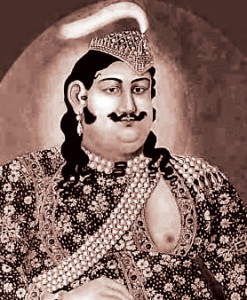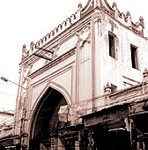| Told by | Parimal Chakraborty |
| Obtained by | Sanjoy Bandopadhyay |
| Date | 02 December 2014 |
| Place | Sangeet Bhavan, B.T. Road Campus, Rabindra Bharati University, 56A, B.T. Road, Kolkata 700050 |
| On Parimal Chakraborty | A well-known Tabla player, Guest Teacher at the Department of Instrumental Music, Rabindra Bharati University |
| Key-words | 1989, Dover Lane Music Conference, Samta Prasad, 40 minutes, Vivekananda Park, Politics, Banaras, tabla, silent-baya, Raghunath Bhattacharya, dayan, bayan, |
Parimal Chakraborty speaks:
Paraphrased in English
Frozen Bayan at Dover Lane
Told by: Parimal Chakraborty
Dover Lane Music Conference has always been the centre of many stories. In 1989 Dover Lane Music Conference used to be organised at Vivekananda Park. Samta Prasad from Banaras came to perform Tabla. He was assigned there for only 40 minutes to perform. He minded that Kolkata became only the place for politics and not for music.
A funny moment happened next day. It was a wonderful evening. A Kathak concert was going on by Balaka Ghosh. Raghunath Bhattacharya in Tabla was accompanying her. Total ambience was filled with the impact of the Jugalbandi. The audiences were also got totally submerged. In Tabla, Raghunathji was giving his ultimate presentation, full of embellishments in both Daya and Baya.
The performance was at its heights. Suddenly the sound of Baya stopped and the audience could only receive the bols ‘tete dhin na, tete dhin na’ of Daya that was echoing throughout the auditorium. Everyone in the hall was very astound and whispering about the matter. At that very moment Samta Prasadji, the Tabla maestro was entering the hall. He also heard the same. In a great amazement he came nearer to the stage and asked Raghunathji about the Baya. Raghunathji tensely answered that the Baya had been ruptured. Samta Prasadji very patiently suggested him to play in reverse mode. But Raghunathji was so nervous at that moment that could not understand the inner meaning of his suggestion ‘ulat ke bajaao’ and literally started playing the Baya by turning it over.
That was the most hilarious moment that anyone can love to recollect.
Author-Date [Reference]
Admin-II. 2014. “Frozen Bayan at Dover Lane.” Music Mapping of Kolkata. December 22. http://kolkatamusicmapping.com/frozen-bayan-at-dover-lane/.
Notes:
Dover Lane music Conference:
Dover Lane Music Conference is an annual Music festival. The conference is organised at Nazrul Manch, Southern Avenue, South Kolkata, on 22nd to 25th January each year. The festival started in 1952. Previously it used to organise at Dover lane under the patronage of Sri Late Narendra Singh Singhi, at his residence, Singhi Park.
About the speaker:
Parimal Chakrabarty is a renowned Tabla player of Kolkata and India. He started taking lessons in Tabla from his father Sri Nikhil Chandra Chakrabarty from the early age. Apart from this, he has also got talim from Ram Dhrubey, Sangeetacharya Guru Jnan Prakash Ghosh and also from another stalwart Pandit Sankar Ghosh. He is a Top Grade artist of All India Radio. He has accompanied with many eminent musicians of all over India.
Paraphrasing and notes by Dr. Suranjita Paul, Research fellow
Data processed at SAP-DRS Lab, Department of Instrumental Music, Rabindra Bharati University.



